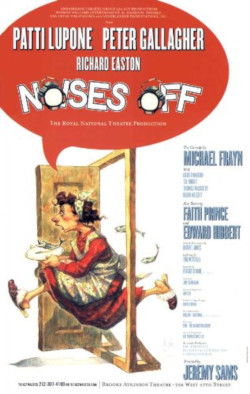
Noises Off is a 1982 farce by the English playwright Michael Frayn.

Dame Agnes Sybil Thorndike, Lady Casson, was an English actress whose stage career lasted from 1904 to 1969.

The Corn Is Green is a 1938 semi-autobiographical play by Welsh dramatist and actor Emlyn Williams. The play premiered in London at the Duchess Theatre in September 1938; with Sybil Thorndike as Miss Moffat and Williams himself portraying Morgan Evans, the West End production ran in all for 600 performances. The original Broadway production starred Ethel Barrymore and premiered at the National Theatre in November 1940, running for 477 performances.
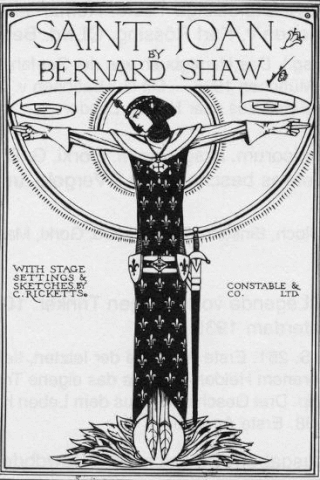
Saint Joan is a play by George Bernard Shaw about 15th-century French military figure Joan of Arc. Premiering in 1923, three years after her canonization by the Roman Catholic Church, the play reflects Shaw's belief that the people involved in Joan's trial acted according to what they thought was right.
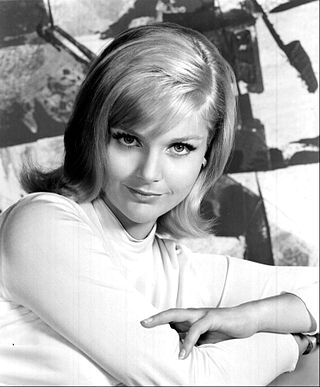
Carol Lynley was an American actress known for her roles in the films Blue Denim (1959) and The Poseidon Adventure (1972).

Benjamin Arthur Flemyng, known professionally as Robert Flemyng, was a British actor. The son of a doctor, and originally intended for a medical career, Flemyng learned his stagecraft in provincial repertory theatre. In 1935 he appeared in a leading role in the West End, and the following year had his first major success, in Terence Rattigan's comedy French Without Tears. Between then and the Second World War he appeared in London and New York in a succession of comedies.
Gerald Harper is an English actor, best known for his work on television, having played the title roles in Adam Adamant Lives! (1966–67) and Hadleigh (1969–76). He then returned to his main love, the theatre. His classical work includes playing on Broadway with the Old Vic company, playing Iago at the Bristol Old Vic and Benedick at the Chichester Festival Theatre. Other plays in London included Crucifer of Blood at the Haymarket Theatre, House Guest, A Personal Affair, Suddenly at Home and Baggage. He has directed many plays, amongst them a production of Blithe Spirit in Hebrew at the Israeli National Theatre.
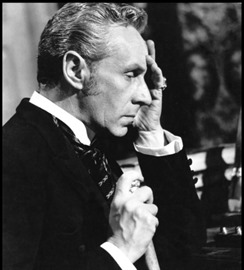
Noel Willman was an Irish actor and theatre director. Born in Derry, Ireland, Willman died aged 70 in New York City, United States.

Twentieth Century is a 1932 play by Ben Hecht and Charles MacArthur based on the unproduced play Napoleon of Broadway by Charles B. Millholland, inspired by his experience working for the eccentric Broadway impresario David Belasco.
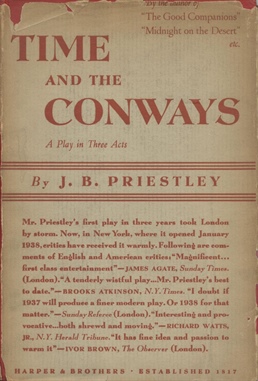
Time and the Conways is a British play written by J. B. Priestley in 1937 illustrating J. W. Dunne's Theory of Time through the experience of a moneyed Yorkshire family, the Conways, over a period of nineteen years from 1919 to 1937. Widely regarded as one of the best of Priestley's Time Plays, a series of pieces for theatre which played with different concepts of Time, it continues to be revived in the UK regularly.

Pack of Lies is a 1983 play by English writer Hugh Whitemore, itself adapted from his Act of Betrayal, an episode of the BBC anthology series Play of the Month transmitted in 1971.

Frank Parish Conroy was a British film and stage actor who appeared in many films, notably Grand Hotel (1932), The Little Minister (1934) and The Ox-Bow Incident (1943).

Jane Baxter was a British actress. Her stage career spanned half a century, and she appeared in a number of films and in television.
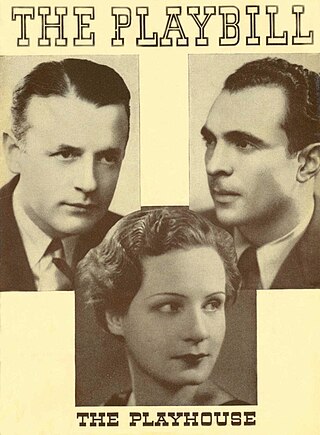
Three Men on a Horse is a three-act farce co-authored by John Cecil Holm and George Abbott. The comedy focuses on a man who discovers he has a talent for choosing the winning horse in a race as long as he never places a bet himself. Originally titled Hobby Horse by John Cecil Holm, Three Men On A Horse was a property controlled and produced by Alex Yokel, who reached out to Warner Bros. for financial assistance; Warners agreed to provide financing on the condition Yokel find someone to doctor the script and direct the Broadway production. George Abbott, the director, who had since 1932 directed and produced each of his Broadway productions, immediately saw the potential and rewrote the script and agreed to direct if he received co-author credit and split the author's royalties with Holm. Abbott wrote a third act, resulting in a new three-act play titled Three Men on a Horse.
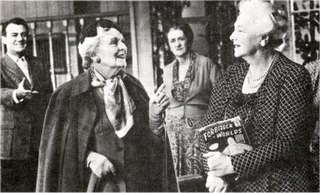
Waiting in the Wings is a play by Noël Coward. Set in a retirement home for actresses, it focuses on a feud between residents Lotta Bainbridge and May Davenport, who once both loved the same man.
The Philanthropist is a play by Christopher Hampton, written as a response to Molière's The Misanthrope. After opening at the Royal Court Theatre, London in August 1970, the piece, directed by Robert Kidd, transferred to the May Fair Theatre in the West End and ran there for over three years, subsequently going on a regional tour in 1974. In the meantime, the play, directed once again by Kidd, premiered on Broadway in March 1971, running till May of the same year. Kidd had previously collaborated with Hampton on When Did You Last See Your Mother? (1964), which had also been staged at the Royal Court Theatre.
John Baragrey was an American film, television, and stage actor who appeared in virtually every dramatic television series of the 1950s and early 1960s.

Alexander Mervyn Archdale was a British actor, manager and theatre producer. He had a very long career in both the theatre and in film, stretching from the 1930s to the 1980s. He spent the latter part of his life and career in Australia.

Norman Charles Hunter was a British playwright whose plays attracted such notable actors to perform them as John Gielgud, Wendy Hiller, Sybil Thorndike, Ralph Richardson, Vanessa Redgrave, Michael Redgrave, and Ingrid Bergman. His play A Picture of Autumn was revived off-Broadway by the Mint Theater Company in 2013. Hunter's play A Day by the Sea was revived off-Broadway by the Mint Theater Company in 2016. It subsequently had its first major UK revival at London's Southwark Playhouse with John Sackville in the title role of Julian Anson

The Complaisant Lover is a 1959 comedy play by Graham Greene. Consisting of two acts, each of two scenes, the play revolves around an affair between Mary Rhodes and Clive Root, the book seller friend of her husband, Victor. The play takes place in the Rhodes family home and an Amsterdam guesthouse.

















